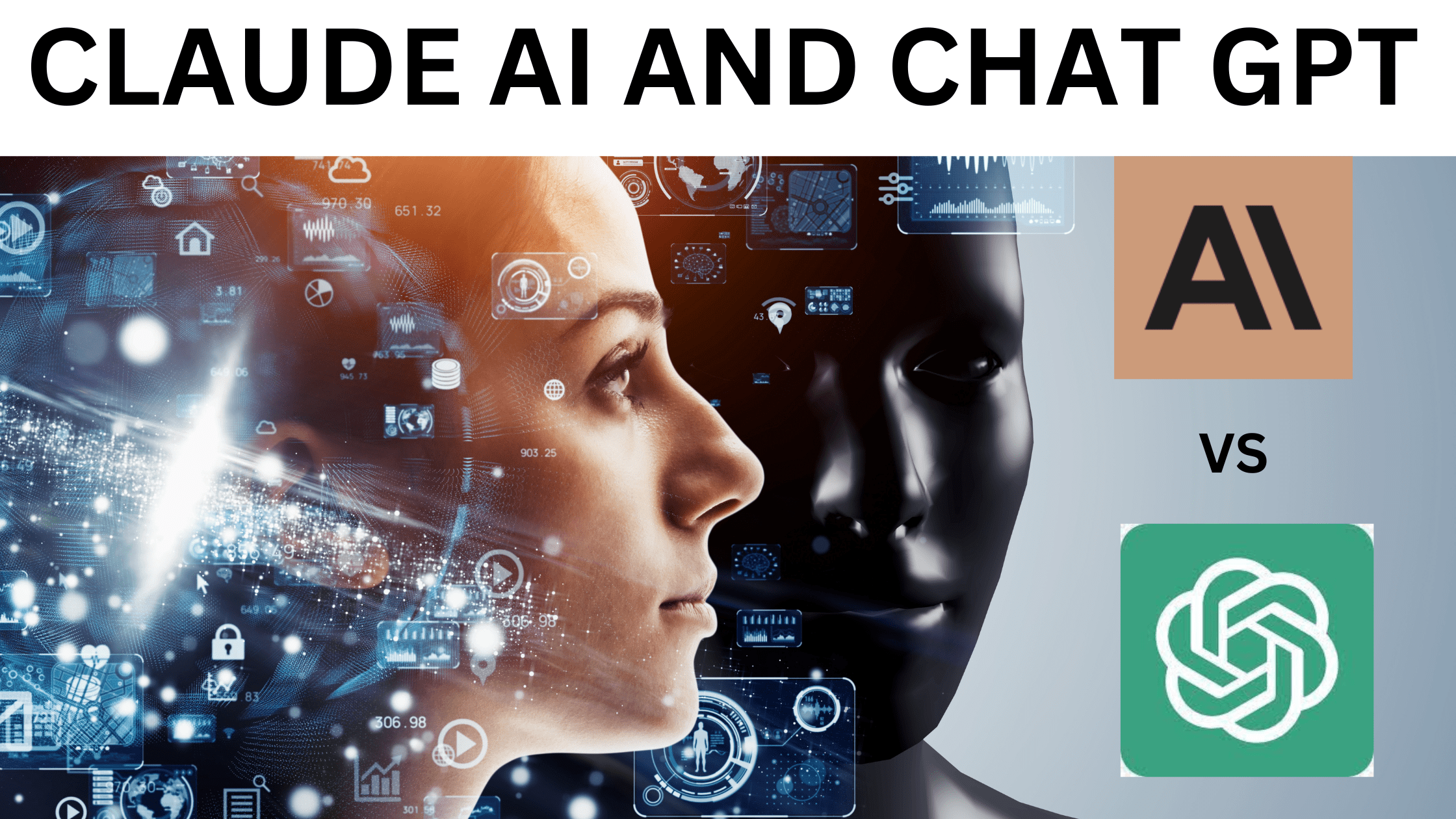Claude is an AI assistant created by Anthropic, a San Francisco-based AI safety startup. Claude is still in the research and testing stages and has limited access.
Key points about using Claude when available:
- A natural conversation is possible with Claude – it’s like chatting with a friend. Engage in a dialogue, ask questions, and share thoughts.
- Keep conversations friendly and constructive. Claude won’t respond helpfully to harmful, unethical, or dangerous requests.
- Claude may occasionally admit if she doesn’t know something or needs more context. Feel free to rephrase or ask new questions.
- Give Claude feedback if responses seem inaccurate or unhelpful. This provides training data to improve its capabilities.
- Don’t expect Claude to have entire human-level conversations. It has limitations in knowledge, reasoning, memory, and generating open-ended dialogue.
- Claude is focused on being an assistant – it aims to be helpful, harmless, and honest if it lacks information or abilities for a request.
- Usage policies will likely prohibit misuse, like generating harmful, biased, or spam content.
The best way to interact with Claude is through friendly, constructive chat and feedback. As an AI assistant still in research, Claude’s conversational abilities are still limited compared to humans. But the goal is a safe, beneficial dialogue experience.
Claude’s capabilities are still evolving as it is under active research and development by Anthropic.
Key Capabilities of Claude
- Natural Language Processing – Claude can understand and respond to open-ended conversational English.
- Friendly dialogue – Claude aims to have harmless, helpful, and honest conversations.
- Limited general knowledge – Claude has some general world knowledge to converse on various everyday topics and current events.
- Question answering – Claude can answer factual questions based on its training data but has limits compared to more comprehensive information sources.
- Providing explanations – Claude can explain the reasoning and thought process behind responses.
- Admitting ignorance – Claude will admit ignorance rather than attempt to generate a response when lacking knowledge or understanding.
- Identifying risks – Claude can recognize potential hazards or risks in specific conversations and avoid responding in unsafe ways.
- Referring information – When unable to directly answer a question, Claude can suggest searching the internet or consulting other information sources.
- Feedback integration – Claude can integrate feedback on the quality of its responses to improve over time.
10 Ways Claude Crushes ChatGPT with Advanced AI”:
ChatGPT took the world by storm as a powerful new conversational AI, but a new model named Claude is set to surpass it. Created by Anthropic, Claude demonstrates significantly more advanced AI capabilities. Here are 10 key ways Claude crushes ChatGPT:
- More accurate and truthful responses. Claude is designed to avoid false claims or making up information, providing reliably honest answers. ChatGPT often fabricates responses.
- Better handling of complex queries. Claude can break down and respond to sophisticated multi-part questions. ChatGPT still struggles with difficult questions.
- Superior contextual knowledge. Claude maintains conversation context and flows far better than ChatGPT. It won’t lose track of the discussion thread.
- Faster learning and improvements. Claude’s self-learning abilities allow it to improve from new data and feedback rapidly. ChatGPT requires extensive retraining.
- A more comprehensive range of knowledge. Claude draws from a vast knowledge base to provide in-depth insights on science, tech, and current events.
- Nuanced responses. Claude provides thoughtful, subtle takes on complex issues instead of oversimplified or speculative replies.
- User control over tone. Users can adjust Claude’s personality and style as needed, unlike ChatGPT’s static tone.
- Built-in safety. Claude is designed with solid safety constraints, avoiding harmful, unethical, or dangerous responses.
- Citation capability. Unlike ChatGPT, Claude can provide citations for facts and quote sources appropriately.
- Responsible AI. Anthropic prioritizes developing Claude as a helpful, honest tool for the common good, unlike ChatGPT’s higher-risk approach.
With advanced design and transparent principles, Claude represents the next generation of conversational AI. ChatGPT has been outmatched and outclassed. The future belongs to responsible, beneficial AI like Claude.
However, Claude has significant limitations compared to human intelligence and reasoning in areas such as:
- Memory and contextual awareness
- Ability to learn and integrate new knowledge
- Analyzing and solving complex problems
- Nuanced language understanding and generation
The aim is to be a helpful assistant, not a replacement for human intelligence and judgment. Anthropic continues to research and develop Claude’s conversational capabilities focused on safety and benevolence.
Main Differences between Claude and ChatGPT
Training Data: Claude was trained using Constitutional AI data, including harmless internet content humans have reviewed. ChatGPT was trained on a broader range of internet data with less curation.
Safety: Claude was designed to prioritize safety and helpfulness, using techniques like Constitutional AI and self-supervision during training. ChatGPT has faced criticisms around potential hazards from harmful or biased responses.
Capabilities: Claude focuses more on friendly conversation and being helpful. ChatGPT aims to provide more general capabilities like answering complex questions and generating content.
Availability: ChatGPT is currently available to try through OpenAI’s API. Claude’s access is still limited in the research/testing stages.
Company goals: Anthropic aims to develop safe and beneficial AI assistant technology. OpenAI has a broader mission of developing advanced AI for research and applications.
In a nutshell, Claude takes a more cautious and constrained approach to conversation compared to ChatGPT’s wider-ranging knowledge and text-generation abilities. Its training focused on safety to be a friendly virtual assistant.
Claude or ChatGPT, which is better?
It’s difficult to say definitively whether Claude or ChatGPT is “better” overall since they have different strengths and weaknesses:
Advantages of Claude:
- More focused on safe, harmless, and helpful dialog – less risk of biased, incorrect, or dangerous responses that ChatGPT sometimes exhibits.
- Training data vetted for potential harms – Claude’s Constitutional AI dataset aims to avoid inheriting human biases.
- Admits limitations more readily than ChatGPT, which tries to respond to any prompt.
- They are designed to integrate user feedback and improve over time based on real-world usage.
Advantages of ChatGPT:
- Accessible to the public now, while Claude is limited.
- Covers a broader range of topics and knowledge – Claude’s ability appears more limited.
- More capable of generating detailed, human-like responses and prose.
- Can complete more complex prompted tasks like programming, essays, and creativity.
So, in a sense:
- Claude may have an edge in safety and interactivity.
- ChatGPT has broader knowledge and text generation power.
Overall, there are still open questions on how Claude will develop and perform outside limited testing. But its safety-focused foundation and conversational focus show promise on its merits, not just in comparison to ChatGPT. The two may excel in different AI assistant roles.
FAQs:
Q: Does Claude have any content filtering or moderation capabilities?
A: Yes, Claude has advanced moderation capabilities to filter inappropriate content. Text is analyzed by classifiers trained to detect toxic language, profanity, insults, etc.; any message containing such content is blocked before reaching the conversational models. This helps prevent exposure to unsafe content.
Q: Can Claude remember previous conversations and context?
A: Claude has session-based memory to track context within a given conversation, improving its ability to follow complex dialogue flows. However, it does not maintain persistent profiles or history across conversations. Each session starts fresh for privacy protection.
Q: How well does Claude understand natural language nuances like sarcasm or humor?
A: Claude has specific detectors that identify nuances like humor, sarcasm, wordplay, etc. in language. It leverages large training datasets covering these forms of expression to comprehend nuanced or non-literal language better. But it can still struggle with very subtle expressions.
Q: Does Claude have capabilities beyond just text conversations?
A: Claude focuses on natural language for now. But Anthropic is working on expanding its capabilities like integrating vision processing to understand images, support for different languages, speech integration etc. The underlying architecture allows for multifaceted perception.
Q: What level of conversational depth does Claude provide?
A: Claude aims for substantive conversations that thoughtfully engage with complex topics and multiple dialogue turns. However, open-ended conversations that go on extensively without a clear purpose or direction can challenge its capabilities.
Q: How does Claude credit sources of information it provides?
A: Claude will mention the source appropriately when quoting facts or citing research. Its knowledge comes from Constitutional datasets, so its origin is tracked. For general knowledge, Claude cannot always provide citations, but efforts are made to improve source transparency.
Q: Can I adjust Claude’s tone, personality, or voice?
A: Not yet, but the customizability of Claude’s speaking style is a planned feature. Users can select different tones or even have personalized models adapted to their preferences over time. But generative safety remains the priority.
Q: What hardware infrastructure powers Claude?
A: Claude utilizes powerful server clusters with high-memory GPUs optimized for massively parallel processing. This allows for efficient inference of the large ensemble models that drive Claude’s conversational capabilities.
Q: How was Claude initially trained, and is it still learning?
A: Claude was pre-trained on Constitutional AI datasets and further trained based on human feedback loops. It continues to learn through techniques like reinforcement learning as it interacts with more users and content. However, rigorous testing is done before deploying any known improvements.
Q: What is Claude’s goal, and does it have any form of agency?
A: Claude is an AI assistant created by Anthropic to be helpful, harmless, and honest. It does not have independent agency or goals beyond serving users through ethical dialogue. Any form of agency or autonomy runs counter to its design principles.

